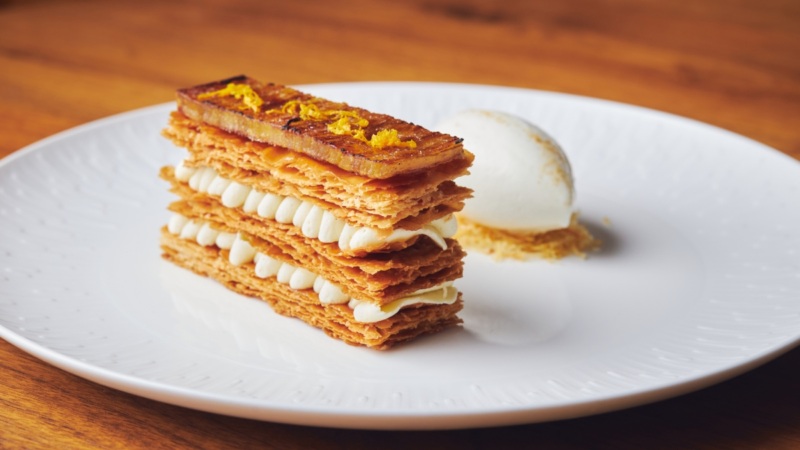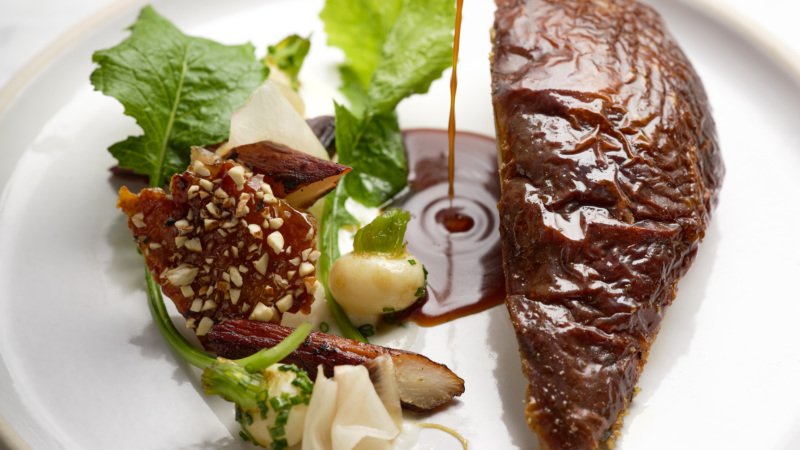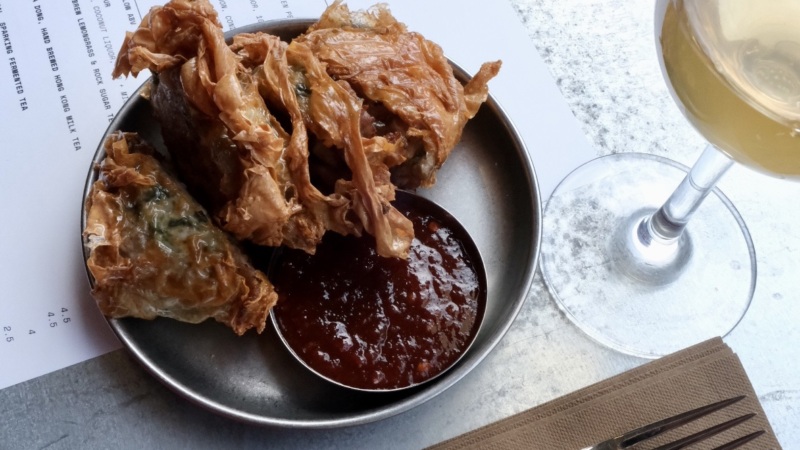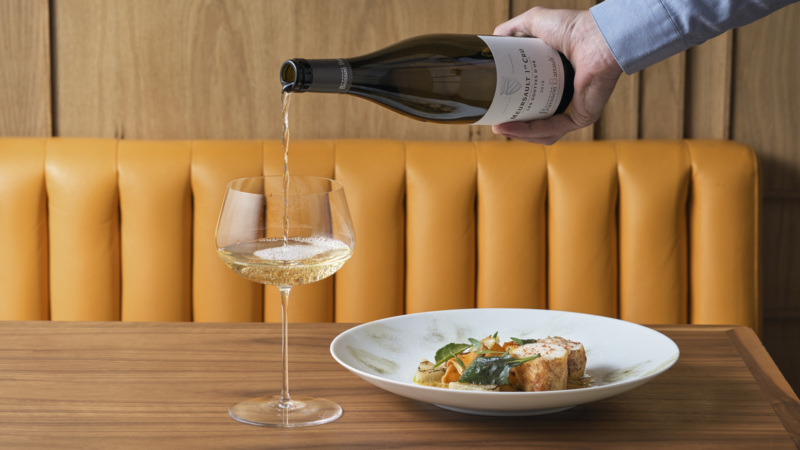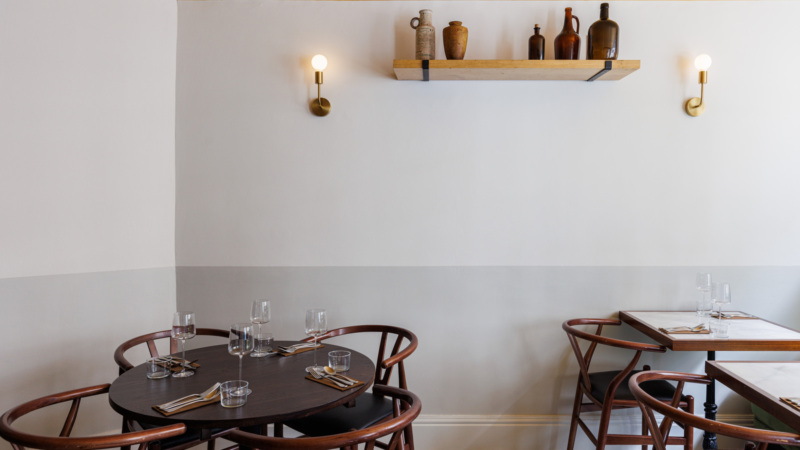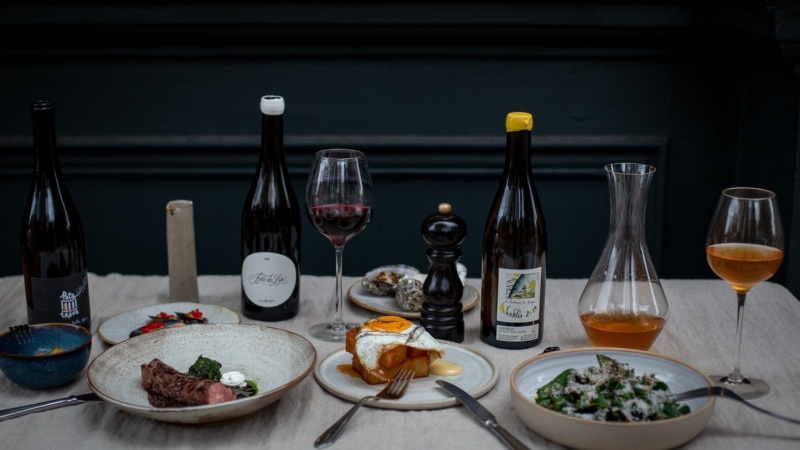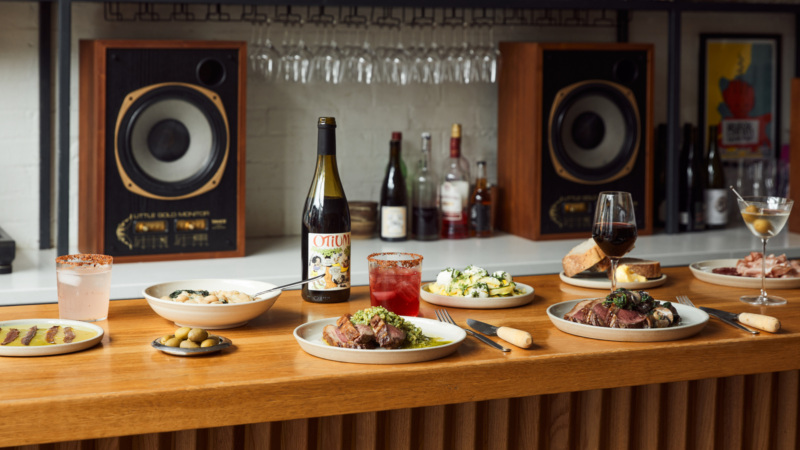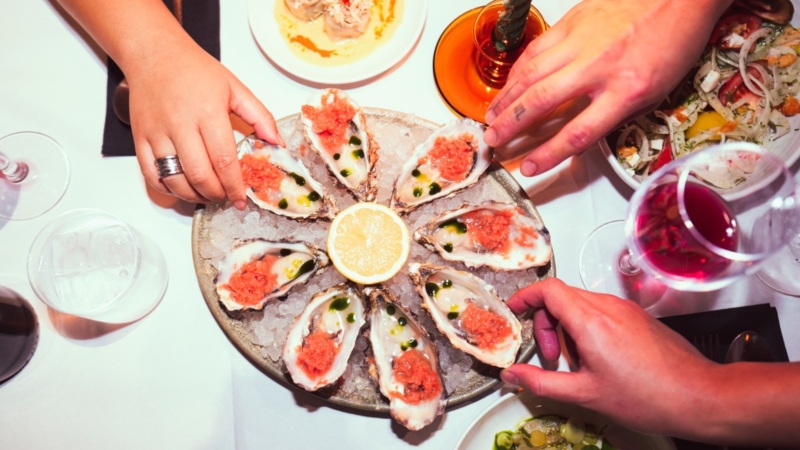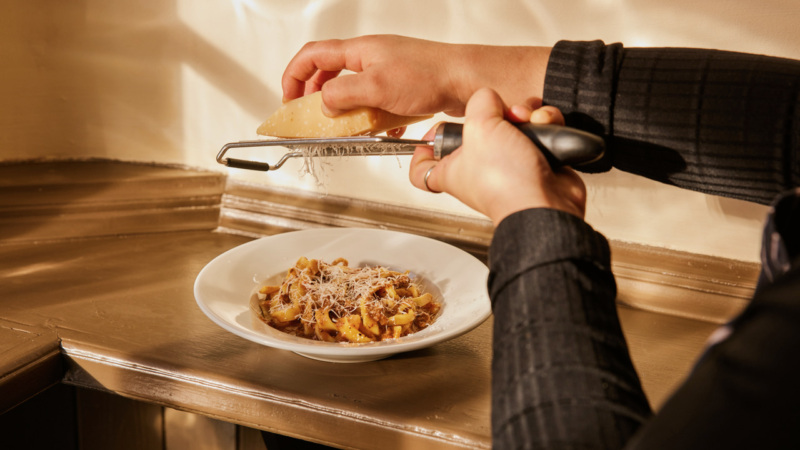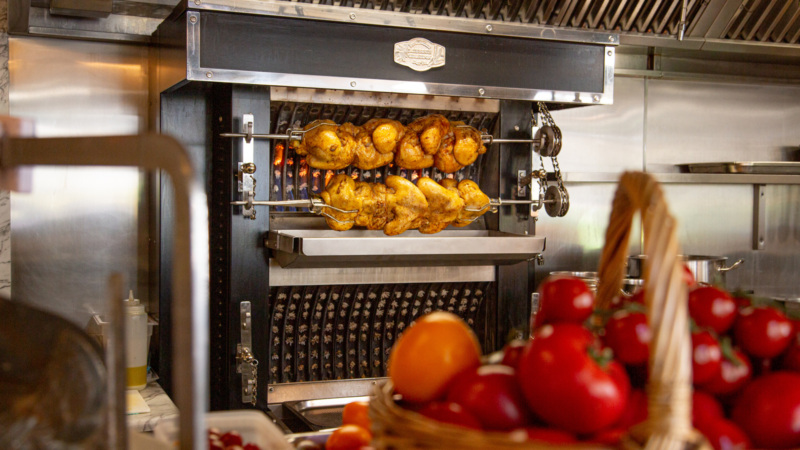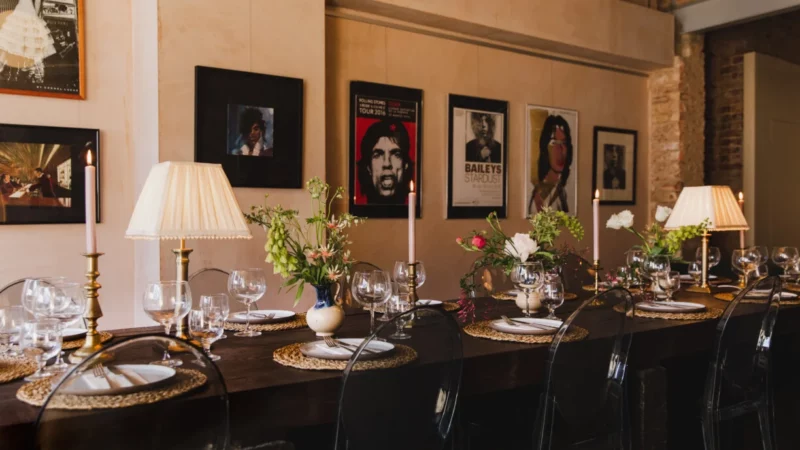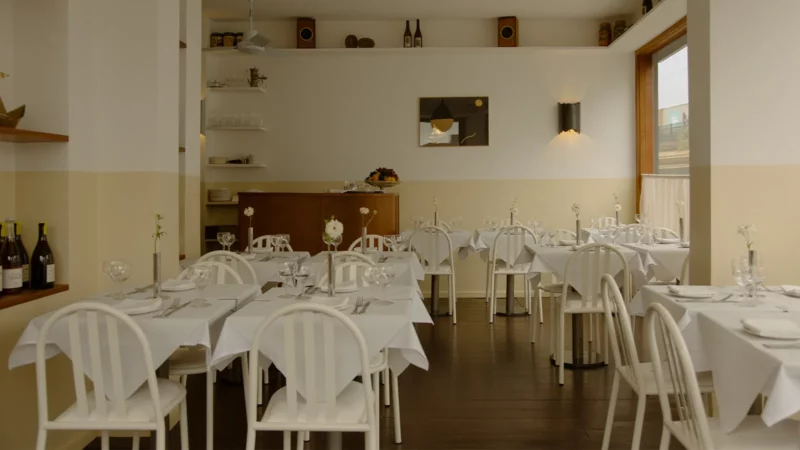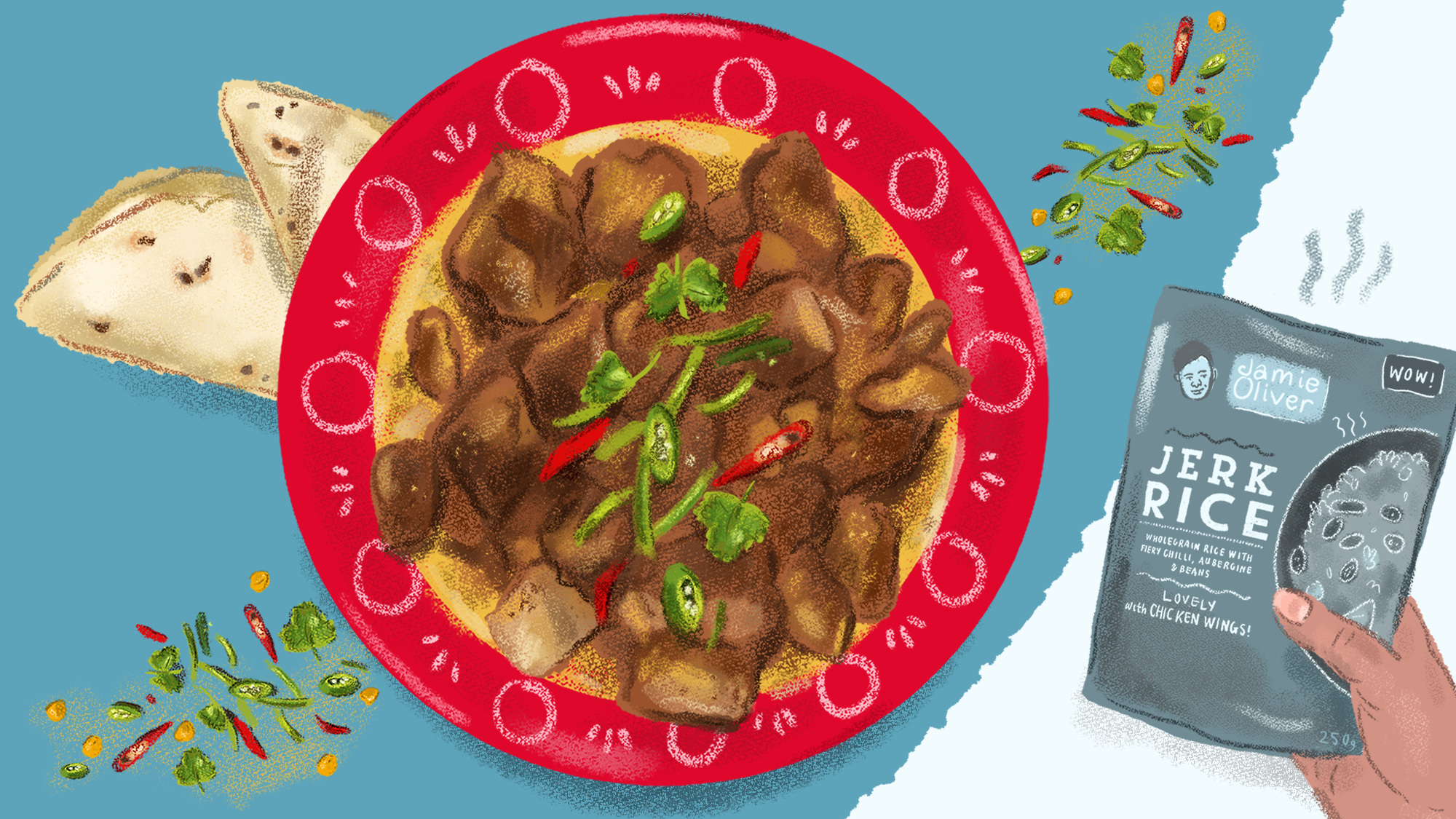
Caribbean Cuisine Is Worthy of Respect as Any In The World. Why Won’t Britain Acknowledge That?
Caribbean culture is an amalgamation of communities – the indigenous Amerindian tribes (such as the Carib, Arawak, and Taíno), West African traditions (namely Ghana, Nigeria, Sierra Leone, The Congo) combined with those of Britain, France, Portugal, Spain, and The Netherlands. There are also the cultural additions of South Indian and Chinese customs woven in from indentured labourers recruited by the colonists.
With such a complex, intertwined history, the Caribbean as we know it exists as a result of Europeans colonising The Americas at the expense of West Africa. So, then, why is the cuisine of the region not celebrated and afforded equal respect in a way that could reasonably be expected after over four hundred years?
Growing up in a Montserratian family, I started Caribe’ to platform the diversity of the food cultures of the Caribbean. There are moments when my research inspires me to showcase some of the region’s vibrant yet humble dishes, like Bajan bread pudding or goat water, my island’s national dish. However, the trauma of enduring ignorance and microaggressions has often superseded the comfort of cooking something nostalgic.
*****
In the early days, one of the first pop-ups I did was at a pub in Highgate. One evening, quite early into my stint, the manager asked if I would place a disclaimer on the menu informing customers that the menu was ‘not spicy’, under the assumption that the potential of heat in our dishes was discouraging customers from trying the menu.
Through sheer disbelief, I refused immediately.
I felt so many emotions at that moment; disrespect, ignorance and neglect. I could feel the othering that her question was coated in, and wondered who else she had made that ignorant statement to, and where they were from? Surely, it should go without saying that chilli was not synonymous to the region’s cuisine in its entirety. I personally enjoy heat – a preference, but not a reflection of my heritage. Ultimately, I knew that I was asked the question because I was Caribbean, and cooking Caribbean food.
Such incidents demonstrate how a projection of privilege and lack of knowledge around contributions by the African diaspora can serve racist narratives asserting that our food is ‘smelly’, ‘funny looking’ or ‘too spicy’. This, in turn, creates a shame which surrounds our cuisine, allowing it to be exploited further, rather than respected and appreciated.
Even with the region’s history and diversity, our culture is still chronically undervalued, and our cuisine commodified and dialled down for western audiences – but that doesn’t have to be the case.
*****
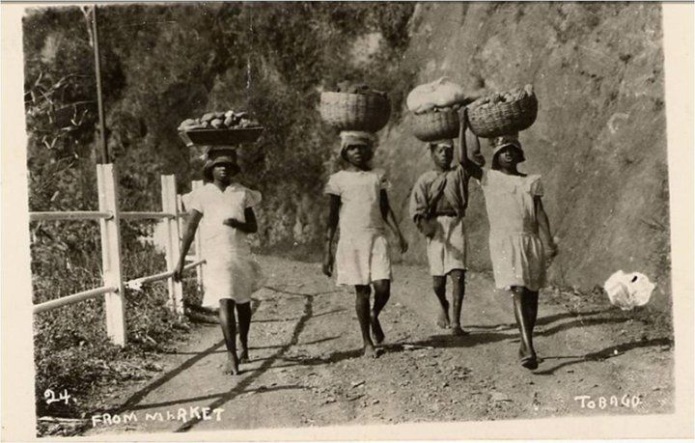
A Persisting Colonial Legacy
A large part of Britain’s failure to recognise the value and diversity of Caribbean cuisine is a result of its colonial legacy and the collateral effects of racism. This legacy has embedded structures that continue to favour anything white and European while marginalising those of the global south.
For example, the purposeful, systemic erasure of Britain’s role in the trans-Atlantic slave trade from the country’s national curriculum means that today, many do not recognise Britain’s shameful past as the largest trafficker and enslaver in the slave trade, and human rights violator in the eighteenth-century world.
“My experience in the restaurant industry has taught me that my heritage is a hindrance, and platforming my own culture is even more of a handicap to success.”
Such historical deletions run counter to the experience of generations of Caribbean migrants in Britain who live with the consequences of the trans-Atlantic slave trade in the present day, allowing dismissal of legitimate claims of racism and cultural insensitivity, which extend to the community’s cultural contributions.
Meanwhile, the whitewashing of food systems continues to categorise what is worthy of respect, and, by extension, what is not. For example, I can count on one hand how many islands of the Caribbean have been explored in recipes amidst an abundance of regurgitated ‘classic’ European dishes.
As a chef and aspiring restaurateur, I originally started out in the restaurant industry believing that I would find success if I cooked great food. But so far, my experience has taught me that my heritage is a hindrance, and that choosing to platform my own culture is even more of a handicap to success.
The reality for a woman like me – a female chef of African descent and Caribbean heritage, cooking food from the West Indies – is that my journey has been significantly different to that of my white counterparts. Perhaps my original hope might have been the case if I did not have afro hair and brown skin?
*****
The Racism Embedded in Modern Value Systems
Last year, I was in conversation with a food DIY kit company to curate a fantastic collaboration of ‘Caribbean feasts’, which I cut short after the company suggested that the cuisine would be better marketed in the summer. It was an inherently racist comment that – as soft it may sound – was loaded with privilege, bias, and ignorance, especially coming after 2020’s summer of anti-racist movements.
The comment typified the disregard and selectivity that white British culture places on anything not immediately familiar. In addition, the premise of suggesting that a cuisine wouldn’t sell well outside of June to August is also a potent reminder of why Caribbean food businesses have yet to make an impact on the wider hospitality industry, and struggle to thrive beyond takeaway shops.
“The premise that a cuisine wouldn’t sell outside of June to August is a potent reminder of why Caribbean food businesses struggle to thrive beyond takeaway shops.”
Caribbeans here in the U.K post-Windrush have historically created ‘yard shops’ and eating spaces to serve a deeper purpose than just a place to dine. They are safe spaces, full of warmth, peace, and free of judgement, prejudice and xenophobia – aggressions that would otherwise pervade every other part of their lives. The importance of these spaces was demonstrated so beautifully in Steve McQueen’s Small Axe series, specifically an episode that highlighted The Mangrove restaurant in West London.
So, when a company seeks to curate their version of Caribbean food whilst commodifying and profiting from it without care, it’s deeply offensive – especially if the same opportunities are not available to the community it originated from.
Who Does the Mainstream Consider ‘Foreign’?
The relationship Britain has with so-called ‘ethnic’ people also helps us to understand their inconsistent relationship with the food of these communities, and why the cuisines of the Caribbean are still undervalued and under recognised.
Krishnendu Ray, an associate professor of food studies at New York University and author of ‘The Ethnic Restaurateur’, theorises that cultural prestige has developed ‘a global hierarchy of taste’, a hierarchy reflected by the richness, power or influence a nation holds. In other words, if the emigrants are considered economically affluent, then their cuisine will command higher menu prices.
“Caribbean cuisine’s lack of impact beyond the idea of tropical holiday eating reflects the tragic past of slavery that the region holds with Britain, and its effect on the community’s overall status”
For Caribbean food in the U.K, it’s clear that the cuisine’s lack of impact in the mainstream beyond the idea of tropical summer holiday eating reflects the tragic past of slavery that the region holds with Britain, and its effect on the community’s value and overall socioeconomic status – The House of Commons report on ethnic groups most affected by income inequality shows those identifying as ‘Black’, whether African or Caribbean, have the second lowest average household income nationally.
Additionally, food media and publications are the gatekeepers in deciding who is deserving of exposure and recognition, and “it is who the mainstream considers ‘foreign’ which determines how the prestige with a cuisine, and the subsequent interactions with it, can fluctuate over time,” says Ray.
Thus, when the level of acceptability is determined by a dominant culture and not by the community it’s integral to, it’s contradictory. Foods that were once considered undesirable, unfashionable, or too obviously-from-an-animal like, say, oxtail, can become trendy overnight if a white chef gives it a platform – but are considered irrelevant if a culture has been cooking with the same ingredients for centuries.
*****
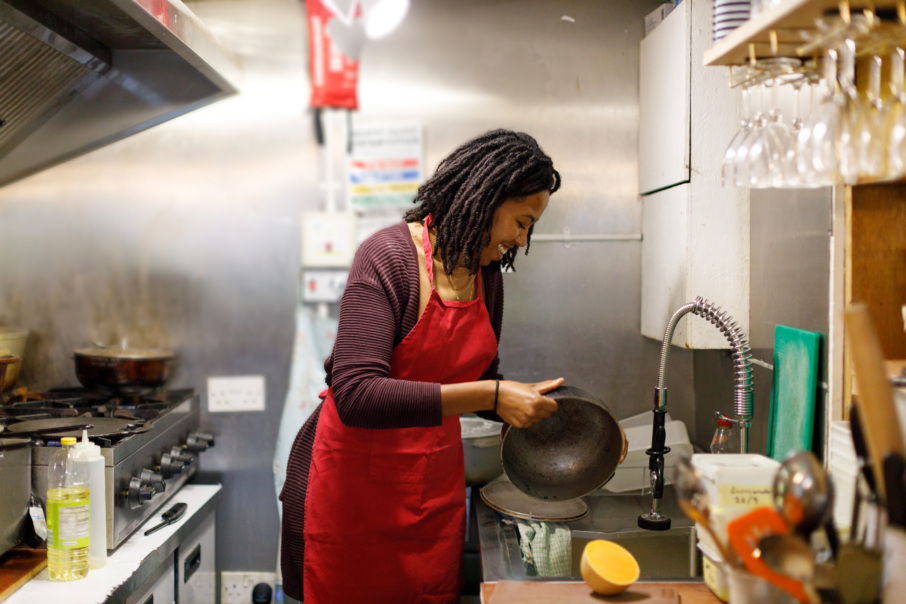
Symbolism Beyond the Plate
When it comes to treating the cultures of diaspora communities with respect and sensitivity, an all-too-common rebuttal to the legitimate objections of Black and brown communities is that ‘it’s just food’.
But food has a story, and can tell us so much about history and ourselves. It has always been of great importance that the provenance of a plate of food is understood, and I believe chefs and restaurateurs bear this responsibility, however they choose to present their craft.
For example, jerk originates from Jamaica and was pioneered organically in the 17th century by Africans when the British fought Spain for the territory. Those who managed to escape plantations amidst the chaos on the island fled to the mountains and lived as maroons. One of the staple foods they survived on was jerk, which they created by roasting wild meat (commonly wild boar) on pimento wood. Since then, it has remained a staple of Jamaican cuisine and represented Caribbean food globally.
The story is one of empowerment, and the symbolism is integral to understanding individual purpose and sense of self – yet this significance is snatched away if recreated without humility. The experience and narrative are made redundant if the dish is fetishised or lacks respect. There was resistance to Jamie Oliver’s jerk rice recipe in 2017 because culture is sensitive and there is a continued undertone of frustration within Britain’s Caribbean and African communities in witnessing our cultures being hijacked, and then sold back to us with no acknowledgement or respect.
“The story of jerk is one of empowerment, and the symbolism is integral – yet this significance is snatched away if recreated without humility”
Oliver’s error demonstrates that the fine line between appropriation and appreciation is crossed when there is no clear distinction between celebration and profit. If there is no clear purpose in doing so, the exoticising of a culture removes the opportunity for food to serve its deeper purpose of symbolism and to delineate culture, serving only to commodify it and erase the value of the communities that have cooked and served it for generations.
Of course, there is nothing wrong with experimentation, and an obsession with authenticity can be problematic in itself – everything evolves, and food is always subject to interpretation. I know for sure that there is no single way to make goat water, the national dish of my island, Montserrat – my aunty and grandmother have their own styles. However, there are common fundamentals that make a dish live up to its name. The problem comes when making food an easier fit for western tastes is then equated as ‘better’.
*****
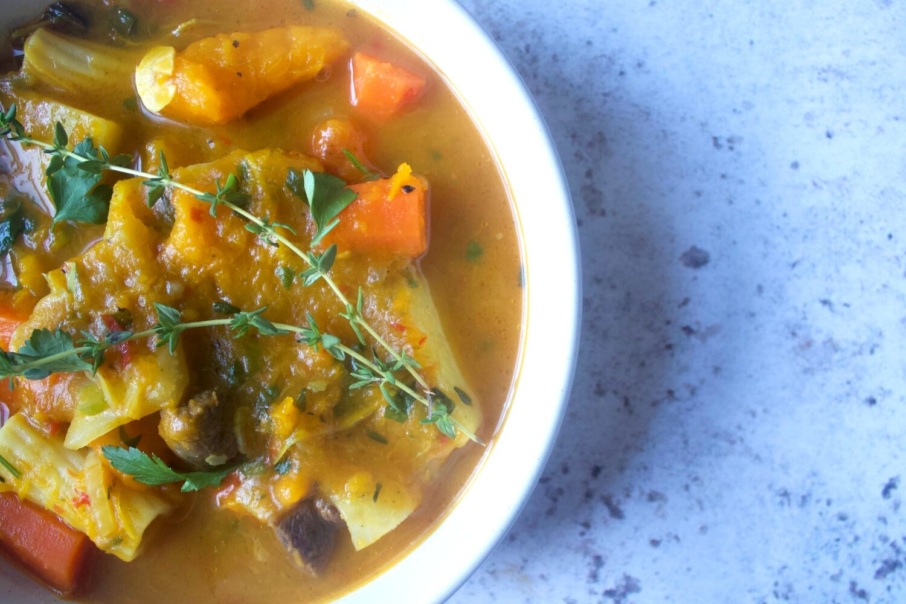
Acknowledging and Representing Communities and Their Cuisine
So, how do we address this in practice? To start, more publications need to treat the cuisines of the Caribbean and African diaspora with the same complexity as they would another coq-au-vin recipe, because beneath the dish, there is a narrative which can provoke interesting conversation on shared experiences and cultural crossover.
Chefs, food writers and contributors of non-European backgrounds deserve their due; our contributions are equally valid and shouldn’t be looked upon as a knee jerk response to a new wave of conversations on race, or as a tokenistic approach to perceived allyship.
“The contributions of chefs and writers from non-European backgrounds are equally valid, and shouldn’t be looked upon as a knee jerk response to a new wave of conversations on race”
Media outlets also need to reassess their approach when they choose to represent a culture’s cuisine. It is important to consult with those of that heritage to ensure it is presented in a respectful and meaningful way. Late last year, Bon Appetit was criticised (again) for sharing a heavily manipulated version of a traditional Haitian recipe – Soup Joumou. This version of the dish was manipulated to the point of erasing the narrative – and the soup’s raison d’être – which commemorates Haiti’s journey to independence.
Finally, diners can research restaurants before they dine to establish the ethos of a place – too often we see restaurants ‘inspired by’ a culture or region with zero depth or insight into either. Ask questions when ordering to get a deeper understanding and a sense of a business for themselves. And pay attention to detail – for example, a restaurant called ‘The Ivy Asia’ just isn’t acceptable as Asia is a vast continent, therefore, can only ever be a generalisation.
For many people – particularly those from non-European backgrounds, food is both personal and political. Second and third generation immigrants, like myself, can experience a disconnect and loss from our native culture from the clothes we wear, to the language we speak. But food manages to maintain a lot of its provenance, and we rely on it to stay connected, as the wider environment forces us to move further and further away from the core of who we are. Food brings me peace and part of a place where my family once was – I will forever look to it to remind me of what and who I am.
Keshia Sakarah is a writer, chef, restaurateur, and the founder of Caribe’ in Brixton. Follow Caribe’ on Instagram.


